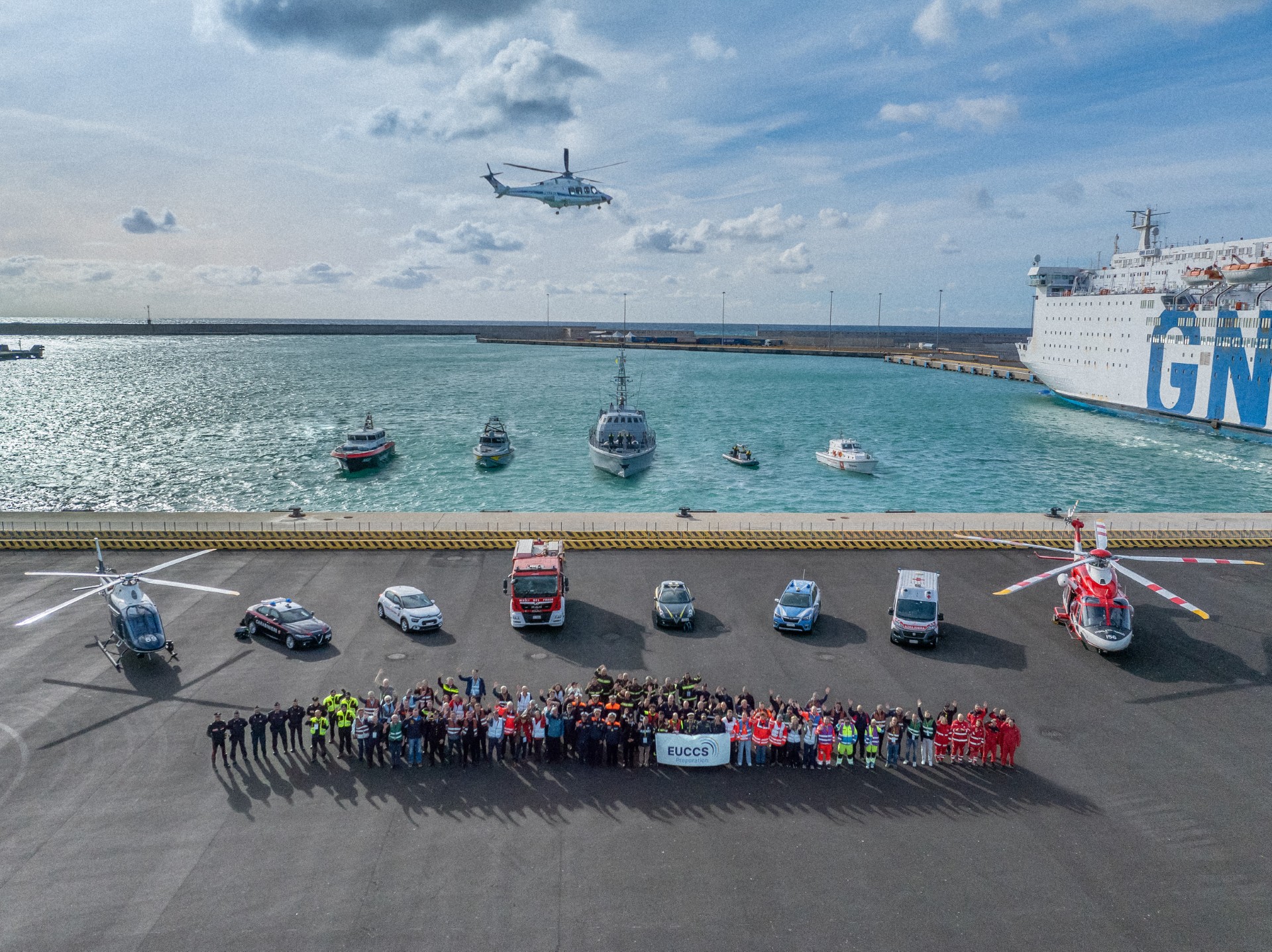26 November 2025

Crédits photos / Photo credits: Frédéric Henriques & Italian Fire Department
Last week, the Port of Civitavecchia hosted a major European exercise, bringing together over 100 participants from across Europe. The goal was to test coordination between different international emergency services and mission-critical mobile communication in complex, realistic scenarios, as part of the EUCCS Preparation programme, which is paving the way for the future European Critical Communications System (EUCCS).
The exercise involved the Italian Ministry of the Interior, the Port Authority, the Guardia Costiera, the Carabinieri, the Polizia di Frontiera, and the Vigili del Fuoco (fire brigade), alongside international participants and representatives from the European Commission, Europol, and Frontex.
Police, firefighters, rescue teams, maritime and aerial crews, observers, and technical teams all worked together to simulate complex operations on land, sea, and air.
The main scenario simulated the interception of a vessel suspected of migrant smuggling in the Mediterranean. Additional incidents included a road traffic accident, hazardous material contamination, a complex medical emergency, and a cross-border surveillance mission.
Three control rooms, located in different locations representing different countries, were used to test international coordination under realistic conditions.
The exercise aimed to understand how different emergency services from different countries can work together using MCX services (Mission Critical Services), enabling secure mobile communication, data sharing, and real-time coordination.
But it is not just about technology. The team also assessed how Standard Operating Procedures (SOPs) can adapt to these new tools, ensuring the technology supports responders’ work rather than complicating it.
Weeks of preparation were needed, including configuring equipment, conducting technical tests with Leonardo and Frequentis, and briefing and training participants.
During the trial, observers monitored the teams to identify what worked, what could be improved, and how information flowed between agencies. Feedback from participants and technical teams will help refine both procedures and technology.
This pilot trial brings Europe closer to a resilient, interconnected emergency communication system. A second large-scale trial is planned for March 2026, testing solutions from Airbus and Teltronic. These exercises are vital to ensure that, in emergency situations, European responders can communicate effectively and collaborate seamlessly, wherever they are.
EUCCS Prep team